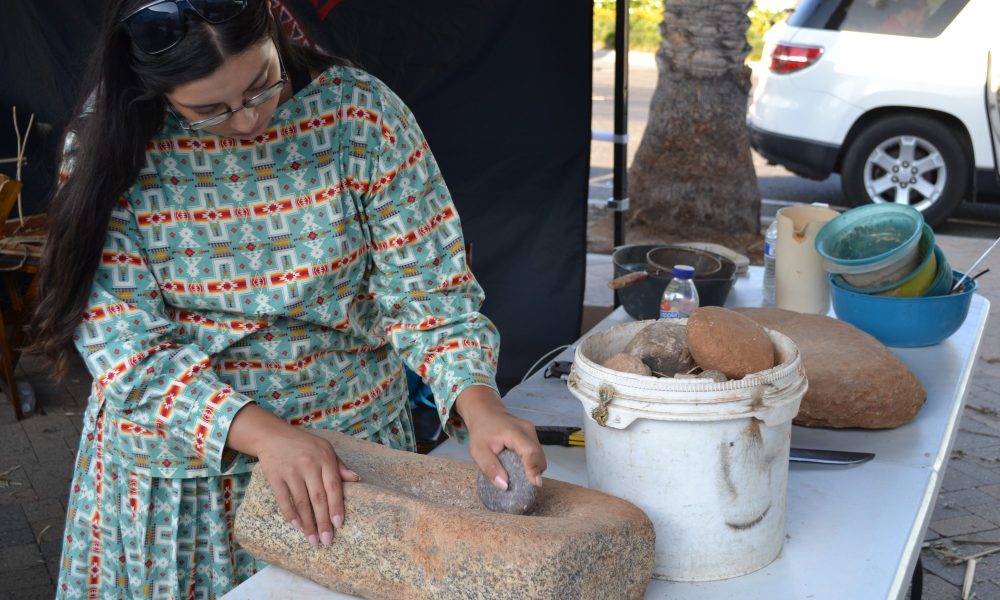The Aquarium of the Pacific hosted the 18th annual Moompetam American Indian Festival this past weekend from 9 a.m. to 5 p.m. on Sept. 17 through Sept. 18.
This event takes place every year with the purpose of raising awareness about local indigenous groups to Long Beach and the issues they face. The name of the actual event, Moompetam, is borrowed from the Tongva language, meaning “People of the Ocean.” Among these indigenous groups were the Acajachema, Tongva, Chumash, Kumeyaay and many others.
“I won’t lie, it’s a lot of work, [but] it’s totally worth it,” said community relations and events manager Chelsea Coleman. “It’s very important to acknowledge this community. They’ve been here longer, this sacred place [is part] of native land.”
The festival consisted of many events, including song performances, traditional storytelling, traditional dances, and informational stands with representatives from different indigenous communities. One of these speakers was Jacque Tahuka-Nunez, an Acjachemen native with a passion for storytelling and spreading her culture.
“[The Moompetam American Indian Festival] is one of the best partnerships [with Aquarium of the Pacific],” Tahuka-Nunez said. “The Aquarium of the Pacific acknowledges us as the caretakers long before others did it…Who are the people who took care of the ocean [before others now]?”
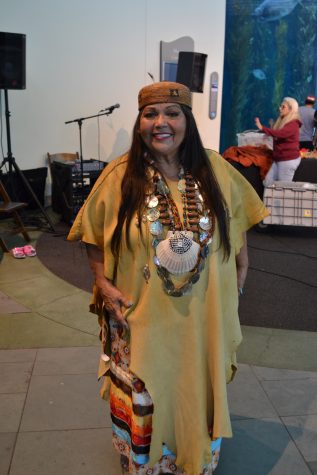
In addition to attending cultural events like the Moompetam Festival, Tahuka-Nunez also presents at school assemblies to not only teach students about indigenous cultures and traditions, but to encourage others to embrace their own roots. She’s also an emcee and business owner, which she began after her son was mocked for his long hair at school. However, Tahuka-Nunez strongly believes that more and more people are now embracing their heritage.
“Had I not stepped in like a momma bear, it would’ve been devastating for my children,” Tahuka-Nunez said. “The story started from my kid and it ended up [being] for all kids of all cultures…It became a metamorphosis.”
For now, like many other indigenous children who attended the festival, Tahuka-Nunez’s children have carried on the baton and became Pow Wow dancers, singers and advocates for their culture.
“It’s a good time to be indigenous,” Tahuka-Nunez said. “I hope it never stops.”
Christopher Tādai Diaz, a speaker of the Tongva Nation, originally started attending the Moompetam Festival as a participant. Years later, he’s also become an emcee who assists with storytelling and ceremonies. He frequently participates in other local events to increase visibility for the indigenous community in Long Beach and surrounding areas.
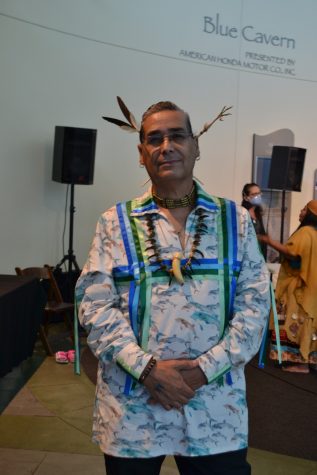
“People don’t realize we still exist, [we’re] almost mythological,” Tādai Diaz said. “We’re still here and we’ve been here for thousands and thousands of years. This event gives people the opportunity to see [us].”
While Tādai Diaz is for visibility and representation in media and in-person, he believes there is still much more that can be done. He believes that events like the Moompetam Festival are just the beginning.
“They don’t know us at all, most students [don’t know us] at all, one of the largest [native sites] in the country,” said Tādai Diaz. “They don’t even know we exist, that’s a sadness.”
Tādai Diaz has advocated for his community by taking part in past protests involving Long Beach State and its treatment towards indigenous people and lands. Though a settlement was reached about a year ago, Tādai Diaz hopes to see more efforts on behalf of the university president and student population to acknowledge indigenous people as a whole.
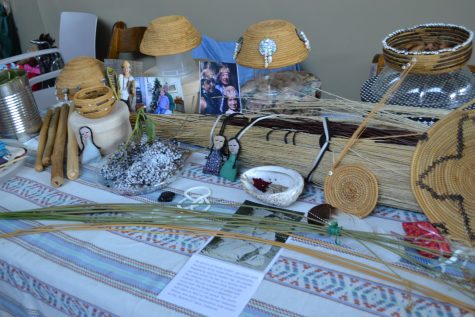
“It’s harder to deny something when you’re right there for me to see you. Come out and see us, talk to us,” Tādai Diaz said. “[Long Beach State] put out a beautiful message about [our culture] – They need to act on it.”
In the meantime, Tādai Diaz encourages students, native organizations, and university representatives alike to attend more indigenous events and help preserve the land belonging to local indigenous groups.
“I’d love to see the president sit down with us and enjoy the beauty of Puvungna,” Tādai Diaz said.
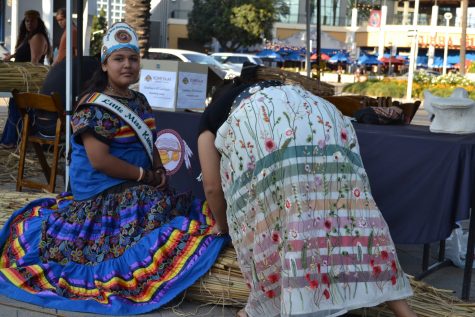
To support local indigenous communities and causes, click the links below:
https://www.bringbackthekern.org/
https://www.friendsofpuvungna.org/
https://journeystothepast.com/

